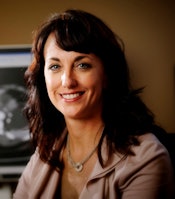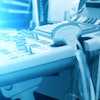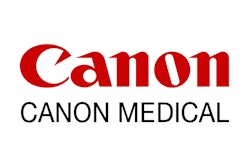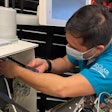
AuntMinnie.com is pleased to present the next installment of Leaders in Imaging, a series of interviews with individuals who are shaping the radiology landscape. This month, we spoke with Dr. Cheri Canon about the American College of Radiology's (ACR) Radiology Leadership Institute (RLI). Canon is chair of the department of radiology at the University of Alabama at Birmingham. RLI is planning an inaugural event in July at Northwestern University's Evanston, IL, campus.
AuntMinnie: What exactly is RLI? Why did the ACR establish it, and what needs does it meet?
 Dr. Cheri Canon, from the University of Alabama at Birmingham.
Dr. Cheri Canon, from the University of Alabama at Birmingham.
Canon: The RLI is a leadership academy for radiologists, radiation oncologists, medical physicists, technologists, and radiology business executives. It includes a multilevel learning cycle that builds to higher levels of leadership and is marked by four certificates in proficiency of leadership. The first courses are slated to begin in August of this year, after the institute's launch event July 12-15 at the Kellogg School of Management in Evanston, IL.
There are many leadership training and management opportunities in medicine and radiology. But the field of radiology does not have its own professional development and leadership academy, starting from residency and continuing all throughout radiology professionals' careers. The ACR recognized a need for specialized professional development and established RLI to satisfy that need.
Since adult learning can be complicated -- that is, each person has particular learner needs -- RLI will offer multiple learning experiences, from direct didactic teaching to interactive Web-based learning, case analysis, and team projects.
How would you describe the state of the radiology field right now? Why is business knowledge necessary?
The practice of healthcare now is incredibly complex -- and what's even more challenging, things are constantly changing. If radiology is going to remain a viable and robust profession, we have to become business-savvy. Historically, radiologists have received management training on the job, but now we need a broader, more in-depth education on the practical ways to run a radiology business. And this education isn't just for department chairs or private practice leaders; every radiologist should develop business skills to some degree.
In the past what has happened is that critical decisions have been made by nonradiologists, since the radiologists themselves haven't had business or management training. If we're going to be decision-makers, we're going to have to know the science behind business practice.
What issues are radiologists facing right now? How will RLI help radiologists deal with those issues and remain competitive?
Radiology is probably always going to be on healthcare's cost-cutting list. Our equipment is expensive, and when you look at healthcare spending, imaging is a huge component.
Radiologists are being asked to do more for less reimbursement, just like every other physician, but the biggest challenge is how dynamic everything is. Lawmakers have ongoing debates about how to curb healthcare spending, and all of this is occurring at the same time radiologists are being asked to maintain high standards of practice in an environment that's become more complex in accreditation and quality measures. Being knowledgeable about how to run a radiology business is crucial.
How is the program structured?
The RLI curriculum is broken into four levels, each with a different number of required credits -- one credit equals one hour of educational activity. Level 1 begins with radiology professionals with little to no formal leadership or business training, i.e., residents; requires 12 credits to complete; and culminates in the Certificate of Leadership Fundamentals.
Level 2 is for early-level career radiologists, requires 30 credits, and culminates in the Certificate of Leadership Proficiency. Level 3 is for midcareer radiologists -- i.e., emerging leaders -- and requires 50 credits as well as successful completion of a 15-credit Advanced Leadership Practicum. Level 3 ends with the Certificate of Advanced Leadership Proficiency, while level 4 requires 20 credits and concludes with a Certificate of Leadership Mastery.
We expect most people to enter at levels 2 or 3. Radiologists will be able to use their work or other applicable educational experience toward their level credits, as well. The curriculum is based on what we call the RLI Common Body of Knowledge, which addresses proficiency in seven areas: finance and economics, ethics and professionalism, legal and regulatory, strategic planning, practice management, professional development, and service, quality, safety. Each of these areas will be weighted differently depending on the level.
At the July event, we'll roll out the program and describe what it's about -- we're all very excited.




















